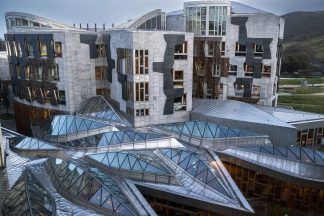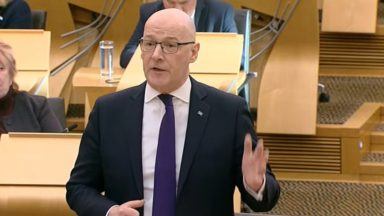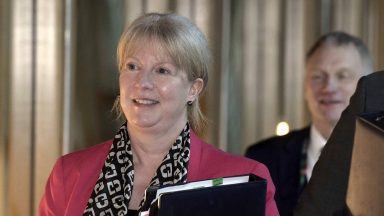The chancellor Kwasi Kwarteng has set out the new government’s financial plans in a ‘mini budget’.
He cut stamp duty, income tax and announced new low-tax ‘investment zones’ – but none of those apply to Scotland.
Caps will be removed from bankers’ bonuses, while people on benefits face their money being slashed.
One thing that will put more money into Scots’ pockets is a reversal of April’s rise in National Insurance.
Who pays NI?
Employers, employers and the self-employed all make NI contributions.
Money is deducted from wages, while employers pay an additional amount.
Those who run their own businesses pay NI on their profits.
The money is used to fund benefits and the state pension, while the government said the April rise would help fund health and social care.
How much will I save?
The increase of 1.25p in the pound announced in April will be reversed from November 6.
Workers who earn less than £12,750 don’t pay any National Insurance – above that level, the amount paid increases in line with wages.
That means people on higher salaries will benefit more than those on lower incomes.
The UK Government says Scots employees will take home an extra £285 a year.
Personal finance expert Martin Lewis has set out how much workers can expect to gain on his website Money Saving Expert:
| Yearly salary | New saving |
| £15,000 | £30.38 |
| £20,000 | £92.88 |
| £30,000 | £217.88 |
| £50,000 | £467.88 |
| £75,000 | £780.38 |
| £100,000 | £1,092.88 |
Why did NI rise in the first place?
The government said it needed to increase contributions by 1.25 percentage points as a levy to fund health and social care.
Since that April hike, employees have paid 13.25 per cent in contributions on any earnings between £9,880 and £50,000, and 3.25 per cent on everything over £50,000.
What else did the chancellor announce?
- Confirmation of the new energy price cap, limiting bills for the average household to £2,500 per year, and help for businesses. Kwarteng said the plans would cost £60bn.
- Reduction in benefits for people who don’t try to find work.
- Legislation to make it harder for unions to take industrial action.
- Planned rise in corporation tax will be scrapped.
- Top rate of income tax in England and Wales – 45% for those earning £150,000 – will be axed.
- VAT-free shopping for overseas visitors.
Any changes coming in Scotland?
The income tax rate and stamp duty are devolved to Holyrood, meaning the Scottish Government will decide how to respond to Kwarteng’s policies.
The Treasury says the Scottish Government will get an extra £600m as a result of its announcements.
First Minister Nicola Sturgeon said earlier this month that the Scottish Government would lay out an “emergency budget review” within two weeks of the UK budget.
Follow STV News on WhatsApp
Scan the QR code on your mobile device for all the latest news from around the country


 iStock
iStock

























